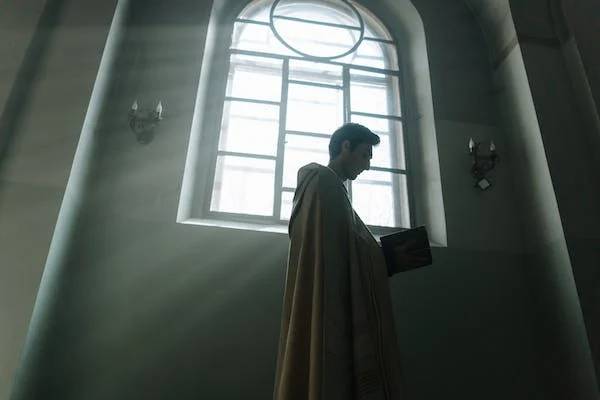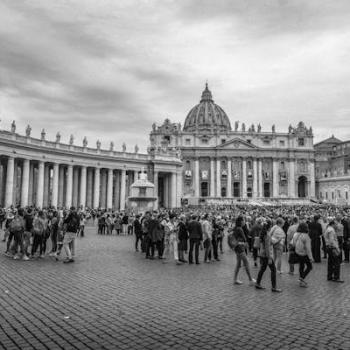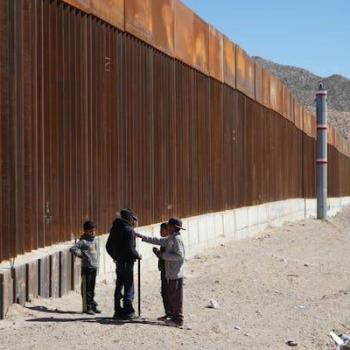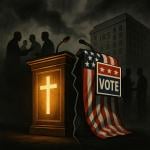
THE RELIGION GUY’S ANSWER:
The new year began with the surprise revival of this perennial issue by a prominent Catholic insider who asserted that the mandate for priests to be unmarried and celibate “was optional for the first millennium of the Church’s existence and it should become optional again.”
This came in a media interview with Archbishop Charles Scicluna, 63, named by Pope Francis in 2015 to lead the church in the nation of Malta. As he indicated, celibacy for all priests, not just those under vows in religious orders, was not made an absolute rule till the Second Lateran Council in A.D. 1139. Back then, one reason was to stop corrupt bishops from handing sons their lucrative posts.
Catholicism is the only branch of Christianity that imposes this requirement.
Sciclina is an especially influential figure due to his 2018 appointment by Francis to a second post as Adjunct Secretary of the Vatican’s all-important agency on doctrine. Over the years, the Vatican has also entrusted the archbishop, who holds doctorates in both secular and canon law, to prosecute delicate cases of sexual abuse by priests.
Married priests already exist
As Scicluna pointed out, the Catholic Church has long welcomed priests who marry prior to ordination in its Oriental Rite jurisdictions, centered in Ukraine, India, Lebanon and elsewhere in the Mideast. Such is also the tradition in Eastern Orthodoxy. (Catholicism occasionally ordains married Protestant ministers who convert.)
The archbishop demanded, “Why should we lose a young man who would have made a fine priest just because he wanted to get married? And we did lose good priests just because they chose marriage.” He said “experience has shown me this is something we need to seriously think about.” For one thing, some priests cope with the rule “by secretly engaging in sentimental relationships” and “we know there are priests around the world who also have children.” Therefore “if it were up to me I would revise the requirement.”
Was Scicluna nudging delegates who next October will attend the second and final session of Pope Francis’s Synod of Bishops at the Vatican? After all, the delegates’ guidebook said local and national discussions leading to the Synod had raised this: “Could a reflection be opened concerning the discipline on access to the priesthood for married men, at least in some areas?” Any such historic proposal voted by the Synod would be merely advisory. The Pope has full power to implement Synod conclusions, or not.
What would Francis do?
How might Francis lean? Last March, he reminded an Argentine news outlet that celibacy “is a temporary prescription” in the western Latin Rite, not a dogma that is unchanging. He added the ambiguous remark that “I do not know if it is settled in one way or another.” In 2019, Francis told journalists “I do not agree with allowing optional celibacy, no,” though he also said he saw leeway to consider exceptions for “pastoral necessity,” as with remote regions that lack priests.
The following year, a book co-authored by Pope Emeritus Benedict XVI championed the traditional celibacy discipline. The modern case for celibacy was officially formulated by Pope Paul VI just after the Second Vatican Council in his 1967 encyclical Sacerdotalis Caelibatus (“Priestly Celibacy”).
The encyclical candidly addressed objections raised against the celibacy discipline starting, appropriately enough, with New Testament. Jesus commended workers who “have renounced marriage for the sake of the kingdom of heaven. Whoever can accept this ought to accept it ” (Matthew 19:12). St. Paul wrote concerning unmarried believers that “it is a good thing for them to remain as they are, as I do” (1 Corinthians 7:8). However, neither mandated singleness for the 12 apostles or subsequent Christian ministers.
In the earliest Christian communities, 1 Timothy 3 teaches that a bishop should be “married only once” while “keeping his children under control,” and Titus 1:5-6 says presbyters must be “married only once, with believing children.” The Pope’s encyclical admitted all that. The clear inference is that most or all would be married as a matter of course. But over later centuries, the practice of clergy celibacy became widespread and, in some areas, a requirement.
Notably, the Pope’s encyclical cited a dozen passages in 1 Corinthians but skipped 9:5, where St. Paul asks “do we not have the right to take along a Christian wife, as do the rest of the apostles, and the brothers of the Lord, and Cephas?” (another name for St. Peter). In other words, the man who in Catholic belief was the church’s first pope was married and traveled with his wife as a Christian evangelist.
A Bible verse ignored
The Catholic Answers Web site likewise ignores the 9:5 verse, thereby demonstrating devotion to celibacy in its treatment of St. Peter. This site admits Peter had been married at one time because we know Jesus cured his mother-in-law (Matthew 8:14-154, Luke 4:38-39). But it echoes a tradition (not any official Catholic view) that he was a widower whose wife “died prior to the ministry of Jesus.”
On other objections, the Pope granted that “some” think celibacy underlies the obvious shortage of priests, and sets up temptations for sexual “waywardness” that damage the church’s witness. Then there’s the contention that the rule prevents development of “a mature and well-balanced human personality,” “disparages human values,” and imposes “loneliness.”
But the Pope insisted that with proper spiritual formation the priest can control his “temperament, sentiments and passions.” And he questioned whether the end of celibacy would “considerably increase the number of priestly vocations.”
Most of the text was a heartfelt argument that the church always makes celibacy voluntary as priests’ “tranquil, convinced and free choice.” It was portrayed as “the total and generous gift of themselves to the mystery of Christ, as well as its outward sign,” that allows full devotion to “pastoral service of the People of God,” with “maximum efficiency and the best disposition of mind, mentally and emotionally.”













